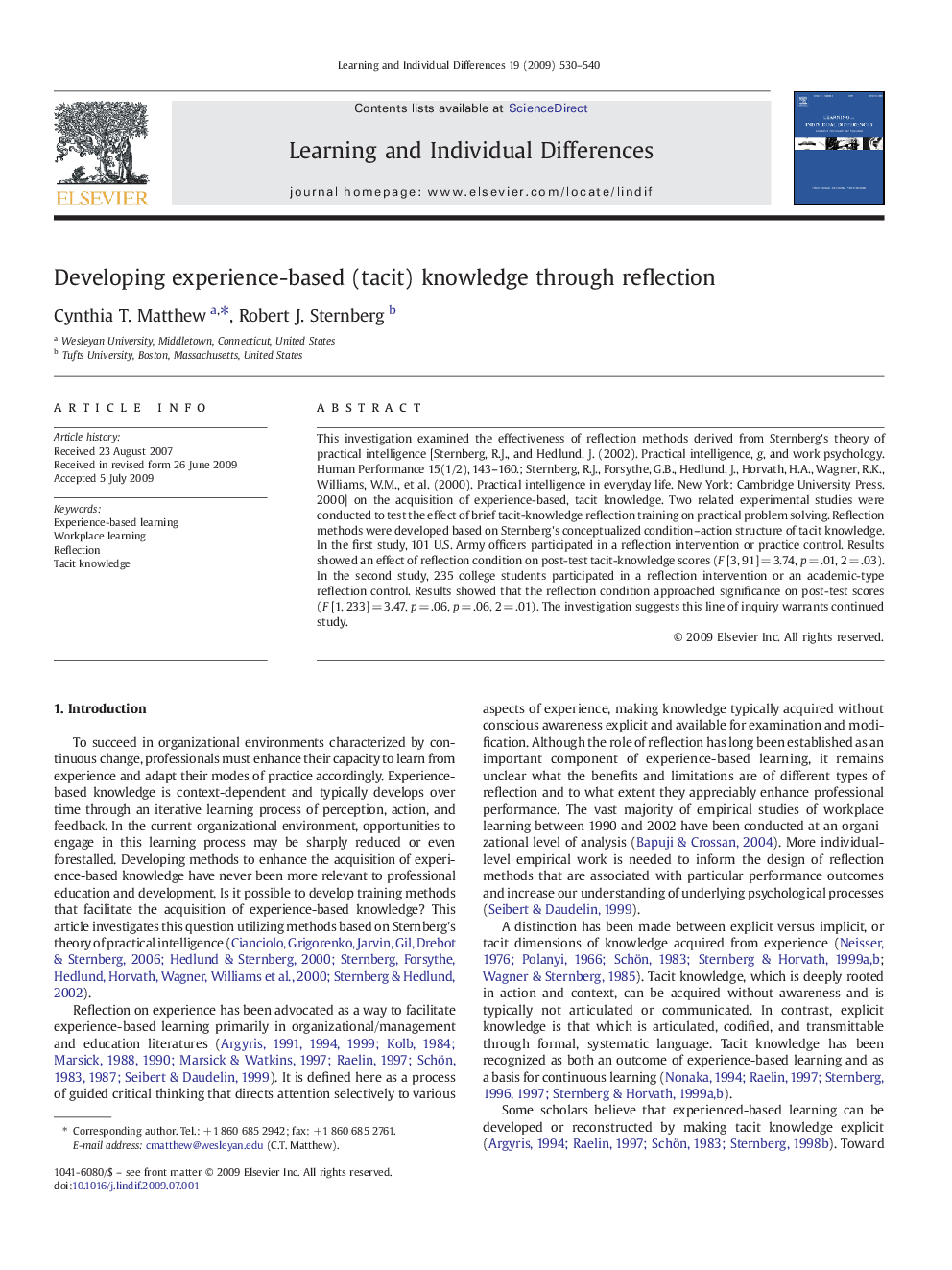| Article ID | Journal | Published Year | Pages | File Type |
|---|---|---|---|---|
| 365413 | Learning and Individual Differences | 2009 | 11 Pages |
This investigation examined the effectiveness of reflection methods derived from Sternberg's theory of practical intelligence [Sternberg, R.J., and Hedlund, J. (2002). Practical intelligence, g, and work psychology. Human Performance 15(1/2), 143–160.; Sternberg, R.J., Forsythe, G.B., Hedlund, J., Horvath, H.A., Wagner, R.K., Williams, W.M., et al. (2000). Practical intelligence in everyday life. New York: Cambridge University Press. 2000] on the acquisition of experience-based, tacit knowledge. Two related experimental studies were conducted to test the effect of brief tacit-knowledge reflection training on practical problem solving. Reflection methods were developed based on Sternberg's conceptualized condition–action structure of tacit knowledge. In the first study, 101 U.S. Army officers participated in a reflection intervention or practice control. Results showed an effect of reflection condition on post-test tacit-knowledge scores (F [3, 91] = 3.74, p = .01, 2 = .03). In the second study, 235 college students participated in a reflection intervention or an academic-type reflection control. Results showed that the reflection condition approached significance on post-test scores (F [1, 233] = 3.47, p = .06, p = .06, 2 = .01). The investigation suggests this line of inquiry warrants continued study.
